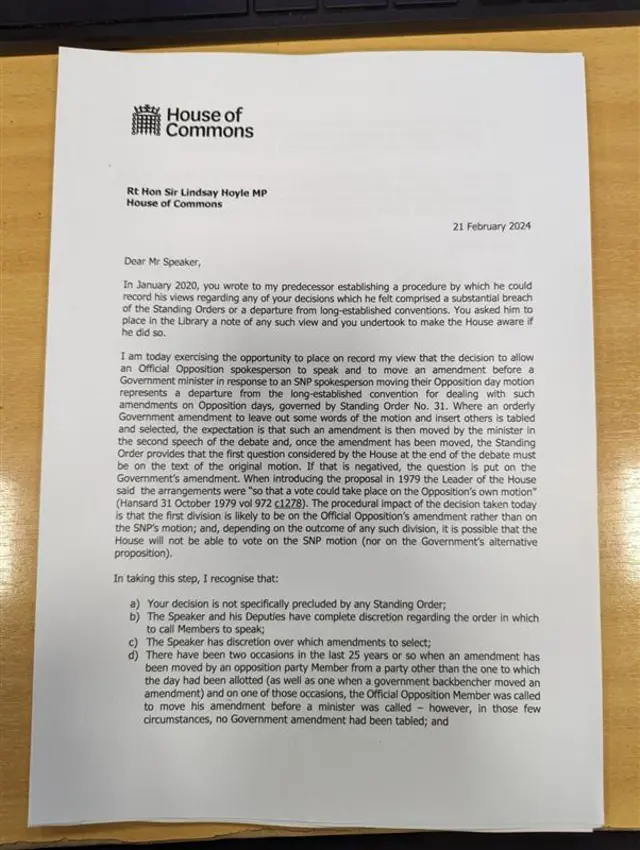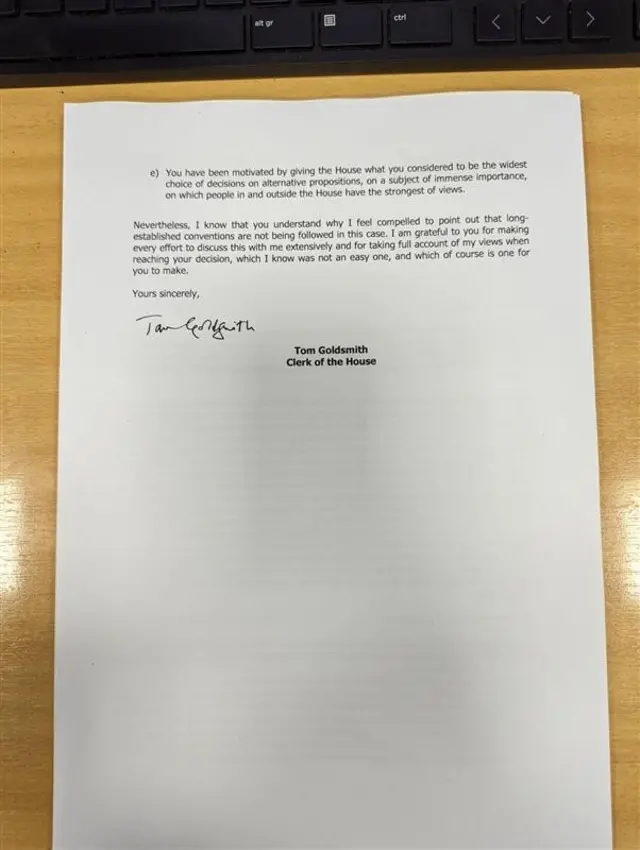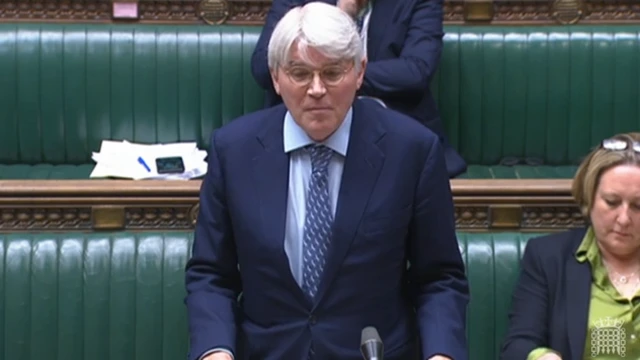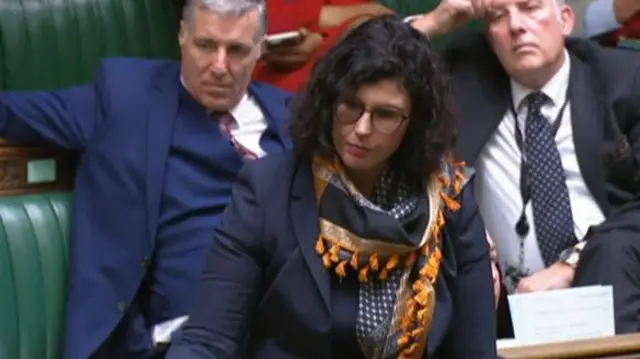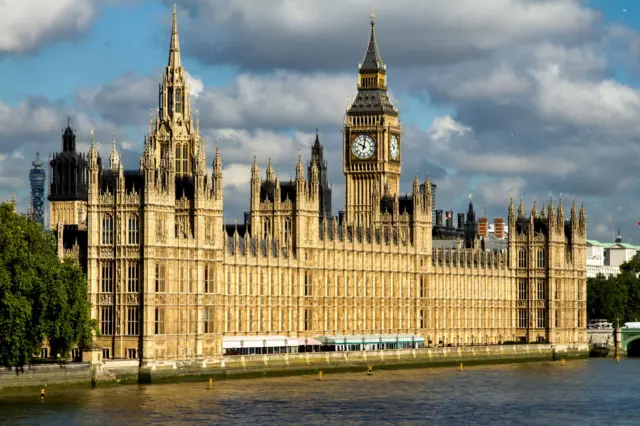'Shame on us for failing to find common ground' - Ellwoodpublished at 15:28 GMT 21 February 2024
The debate continues with Tobias Ellwood, Conservative MP for Bournemouth East, saying that as the nation watches on, "it's been a very sad day for parliament".
"There are not one but three separate motions as this debate turns into political football, shame on us for failing to find common ground," Ellwood says.
He adds it has been a wasted opportunity to show UK leadership and to get closer to the objective they are debating.
He says that from the start he supported Israel's right to defend itself after the 7 October attacks but, he says, he was the only voice in parliament "to warn Prime Minister Netanyahu before he sent in the tanks not to invade until there was a clear governance and security plan" to work toward.
Hamas should not be allowed to stay as they are committed to destroying Israel, Ellwood adds, and says that shouting ceasefire alone will not change their aim.

